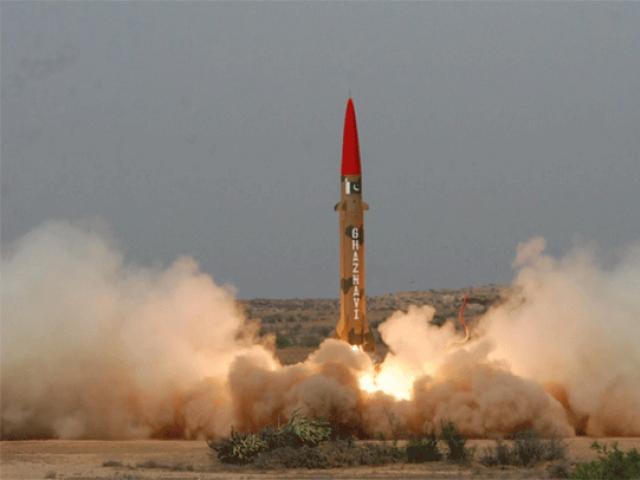Indian nuclear security measures weaker than Pakistan's: report
Report says Pakistan has substantially strengthened its nuclear security in the past two decades

PHOTO: ISPR
"Although India has taken significant measures to protect its nuclear sites, recent reports suggest that its nuclear security measures may be weaker than those of Pakistan," a report published by the Harvard Kennedy School stated.
Pakistan will become fifth largest nuclear power by 2025: report
It is "difficult to judge" whether or not India's nuclear security measures are competent enough to protect India from the threats it faces, though "likely adversary threats in India are less extreme," the report revealed.
It was further stated that though "Pakistan has substantially strengthened its nuclear security in the past two decades, the risk of nuclear theft in Pakistan also appears to be high."
"Possibilities of state collapse or extremist takeover cannot be entirely ruled out," the report said about Pakistan.
Further discussing Pakistan's level of nuclear security, the report stated that Pakistan's Strategic Plans Division has 25,000 troops available to guard Pakistani nuclear stocks and facilities, with sites equipped with extensive barriers and detection systems.
The report emaphasised on the United State's constant cooperation with Pakistan to improve nuclear security. It included negative trends such as the absence of recent US expressions of confidence, Pakistan's shift towards tactical nuclear weapons and a possible increase in the number of locations due to a rise in the number of weapons.
India building top-secret nuclear city
The report highlighted that "Pakistan’s nuclear security systems must protect against almost overwhelming adversary threats," including terrorist groups which continue to prove that they are "willing and able to launch complex, well-coordinated attacks on heavily defended military targets within Pakistan."
An example of such an attack presented in the report was September 2014, when "a group of naval officers who had been recruited by al Qaeda’s newly formed South Asia branch attempted to seize a Pakistani frigate, with the idea of using its anti-ship missiles to attack US naval vessels, provoking an extended firefight."
The report quoted Pakistan's Defence Minister Khawaja Asif telling the parliament that "without assistance from inside, these people could not have breached security.”
"Pakistan also suffers pervasive and deeply ingrained corruption, which can create additional opportunities for insider recruitment," the report added.
Terror strike: Pakistan Navy foils attack on Karachi dockyard
However, the lack of confidence and negative reports did not make the US lose hope in Pakistan. The published document stated, "Despite negative reports, US officials from President Obama to the Chairman of the Joint Chiefs of Staff have repeatedly expressed confidence in Pakistani nuclear security arrangements."
Given the current situation, the report highlighted 2016 as a "pivotal roll for nuclear security, as actions in Syria, Iraq, Afghanistan, Pakistan, and elsewhere will affect the shape of the terrorist threat for years to come."



















COMMENTS
Comments are moderated and generally will be posted if they are on-topic and not abusive.
For more information, please see our Comments FAQ